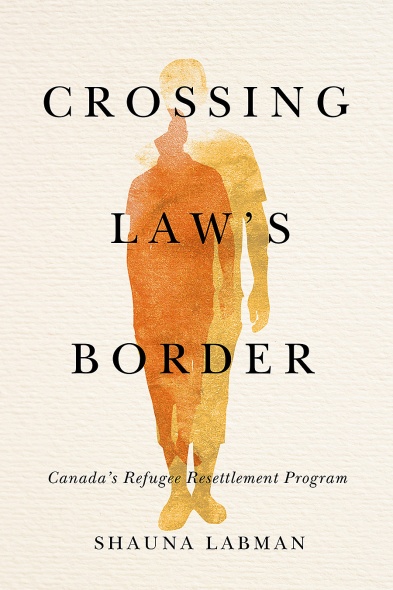Dr. Labman receives the 2019 K.D. Srivastava Prize
Wed. May. 12, 2021
 Congratulations to Professor Shauna Labman on receiving the 2019 K.D. Srivastava Prize for Excellence in Scholarly Publishing!
Congratulations to Professor Shauna Labman on receiving the 2019 K.D. Srivastava Prize for Excellence in Scholarly Publishing!
Dr. Shauna Labman's book Crossing Law’s Border: Canada’s Refugee Resettlement Program (UBC Press, 2019) received this prestigious Prize in May 2021. The Prize is awarded annually by UBC Press and the Office of the Vice-President Re-search and Innovation (VPRI) to the author of the best book published by UBC Press in the previous year. Dr. Labman's scholarly contribution was praised for its research and conception of the theory of law, its structural strength, and its impact on the scholarly community and beyond.
Crossing Law’s Border: Canada’s Refugee Resettlement Program (UBC Press, 2019) ISBN:9780774862189
The UN Refugee Agency considers resettlement – the selection and transfer of refugees from the state where they seek asylum to another state – to be a tool of refugee protection and an expression of international burden sharing. Resettlement is voluntary and ad hoc, and Canada is one of three leading resettlement countries in the world.
In this account of Canada’s resettlement program from the Indochinese crisis of the 1970s to the Syrian crisis of the 2010s, Shauna Labman explores how rights, responsibilities, and obligations intersect in the absence of a legal scheme for refugee resettlement. She asks: How does law influence the voluntary act of resettlement, and how does resettlement affect asylum policy? She reveals that the core concept of refugee protection, non-refoulement, which prevents countries from turning away asylum-seekers, can be compromised by resettlement, both by the resettlement selection process and the influence of resettlement practices on in-country asylum.
This pathbreaking look at the interplay between resettlement and asylum in one of the world’s most successful refugee protection programs shows that resettlement can either complement or complicate in-country asylum claims at a time when refugee crises and fear of outsiders are causing countries to close their borders to asylum-seekers around the world.
This book will appeal not only to scholars in law, sociology, and refugee and migration studies but also to general readers and policy makers interested in refugees and resettlement programs.
